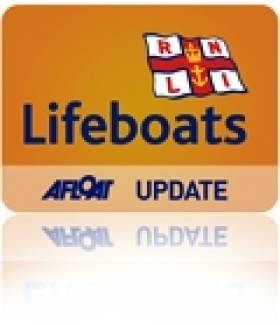Displaying items by tag: income
AIB No Longer Covering Sailing Club Subs for Staff
#SAILING CLUBS - Sailing enthusiasts on AIB's staff have taken a blow to the wallet as the bank is to stop paying club membership fees for employees, the Irish Independent reports.
In an e-mail seen by the paper, AIB head of human resources John Conway said the cuts - which came into effect on 1 January - were the result of a review of benefit structures within the bank, which is dealing with "ongoing problems".
The change brings to an end two benefits-in-kind that had been considered significant attractions for new employees, the other being special lending rates for staff members.
Up till the end of 2011, AIB covered 50% of club membership fees up to €1,250 for rank and file employees, and 100% of fees up to €2,500 for management. Bank of Ireland staff continue to receive similar perks.
The moves comes not long after the Irish Sailing Association's announcement of proposals to revise its sailing club membership fee structure.
As previously reported on Afloat.ie, the ISA will convene an EGM next month to discuss changes to the 'joint membership scheme' in favour of a "single fee formula that is proportionate to a club's membership subscription income".
The Irish Independent has more on the story HERE.
RNLI Appeals for Donations to Ensure Its Survival
The Royal National Lifeboat Institution (RNLI) has issued an appeal for funds to ensure its survival.
The volunteer crews from the RNLI go to sea hundreds of times a year to help those in danger off the Irish coast, often in terrible conditions.
One recent rescue reported on Afloat.ie saw the Fenit inshore lifeboat launched to go to the aid of a fishing vessel in Tralee Bay having difficulties in thick fog.
The lifeboat successfully found the disorientated oyster fishing boat, with three crew members aboard, then discovers two further oyster fishing boats also struggling in the fog. All three were escorted safely back into the harbour.
The last two years were the busiest in the RNLI's history, the organiation says, but income is in danger of not keeping pace.
Last year volunteer-crewed lifeboats rescued 813 people from the seas around the Irish coastline, They are ready to go to sea whatever the conditions, and are on call 24 hours a day. But they can't do this without your help.
The RNLI is a charity and relies on donations to keep the lifeboat service running. If you can give anything, please forward it to the RNLI Fundraising Appeal, RNLI Ireland, Dept AA1280, PO Box 4214, Freepost, Dublin 2.

























































